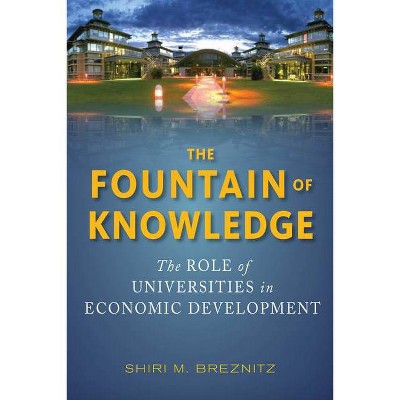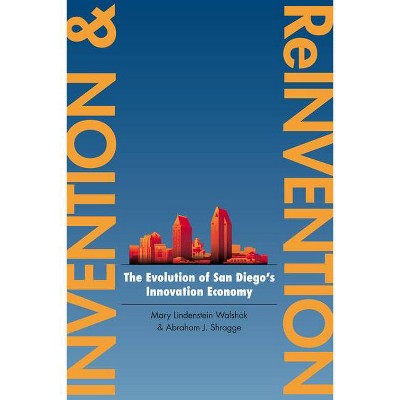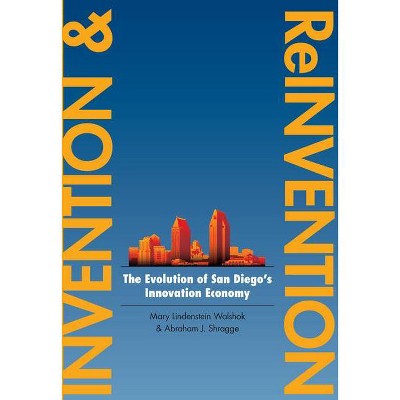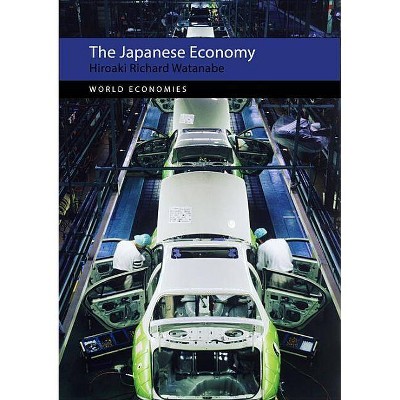The Rise and Fall of Urban Economies - (Innovation and Technology in the World Economy) (Paperback)
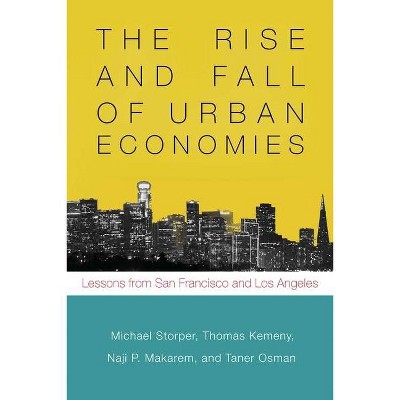
Similar Products
Products of same category from the store
AllProduct info
<p/><br></br><p><b> About the Book </b></p></br></br><i>The Rise and Fall of Great Urban Economies</i> closely examines the divergent economic paths of San Francisco and Los Angeles in order to explain how regions copes with new opportunities and unfavorable shocks. By honing in on micro-level trends in these two cities, the authors make a significant contribution to the dialogue surrounding metropolitan development, urban and regional policy, and comparative economic development more broadly.<p/><br></br><p><b> Book Synopsis </b></p></br></br><p>Today, the Bay Area is home to the most successful knowledge economy in America, while Los Angeles has fallen progressively further behind its neighbor to the north and a number of other American metropolises. Yet, in 1970, experts would have predicted that L.A. would outpace San Francisco in population, income, economic power, and influence. The usual factors used to explain urban growth--luck, immigration, local economic policies, and the pool of skilled labor--do not account for the contrast between the two cities and their fates. So what does?</p> <p><i>The Rise and Fall of Urban Economies</i> challenges many of the conventional notions about economic development and sheds new light on its workings. The authors argue that it is essential to understand the interactions of three major components--economic specialization, human capital formation, and institutional factors--to determine how well a regional economy will cope with new opportunities and challenges. Drawing on economics, sociology, political science, and geography, they argue that the economic development of metropolitan regions hinges on previously underexplored capacities for organizational change in firms, networks of people, and networks of leaders. By studying San Francisco and Los Angeles in unprecedented levels of depth, this book extracts lessons for the field of economic development studies and urban regions around the world.</p><p/><br></br><p><b> Review Quotes </b></p></br></br><br><i>The Rise and Fall of Urban Economies</i> is a path-breaking book, both empirically and theoretically. It brings together an impressive array of data that helps explain the divergent economic trajectories of the San Francisco Bay Area and the Los Angeles region, and provides new theoretical insights on the importance of social networks and knowledge communities in shaping economic growth.--Chris Benner "University of California, Santa Cruz"<br><br>A highly original inquiry into the diverging development trajectories of Los Angeles and San Francisco since the 1970s. This book offers exemplary forensic evidence, while at the same time providing a robust theoretical appraisal of regional growth in general.--Allen J. Scott, Distinguished Research Professor, University of California "Los Angeles"<br><br>Storper and his colleagues have crafted a sweeping yet nuanced account of how the economies of metropolitan Los Angeles and San Francisco have steadily diverged over the past several decades. Their interpretation, based on a wealth of data and interviews, has important lessons for many urban regions struggling to maintain or improve their place in the global economy.--Edward J. Malecki "The Ohio State University"<br><br>This is a very serious new book about economics and policy written by a team of academics under the leadership of Michael Storper . . . But it is written in a very accessible style, using the structure of a scientific detective story. And it is a must-read for anyone who cares about the future of California and cities more broadly.--Jon Christensen "<i>SFGate</i>"<br><br>Throughout history, commerce and cities have invented and paced each other. Once developed, cities entered into competition. Blending the perspectives of history, business, urban planning, and public/private partnership, this lively and exhaustively documented study tells the story of how two representative urban regions--the Bay Area centered on San Francisco and Los Angeles, a metropolitan region unto itself-- have carried on this ancient and ever new competition for commerce and hegemony.--Kevin Starr "University of Southern California"<br><p/><br></br><p><b> About the Author </b></p></br></br><b>Michael Storper</b> is Professor of Urban Planning at the University of California, Los Angeles. <b>Thomas Kemeny</b> is Lecturer in Human Geography at the University of Southampton. <b>Naji Makarem</b> is Lecturer in the Bartlett Development Planning Unit (DPU) at University College London (UCL). <b>Taner Osman</b> is an instructor in the Department of Urban Planning at the University of California, Los Angeles.
Price History
Price Archive shows prices from various stores, lets you see history and find the cheapest. There is no actual sale on the website. For all support, inquiry and suggestion messagescommunication@pricearchive.us




